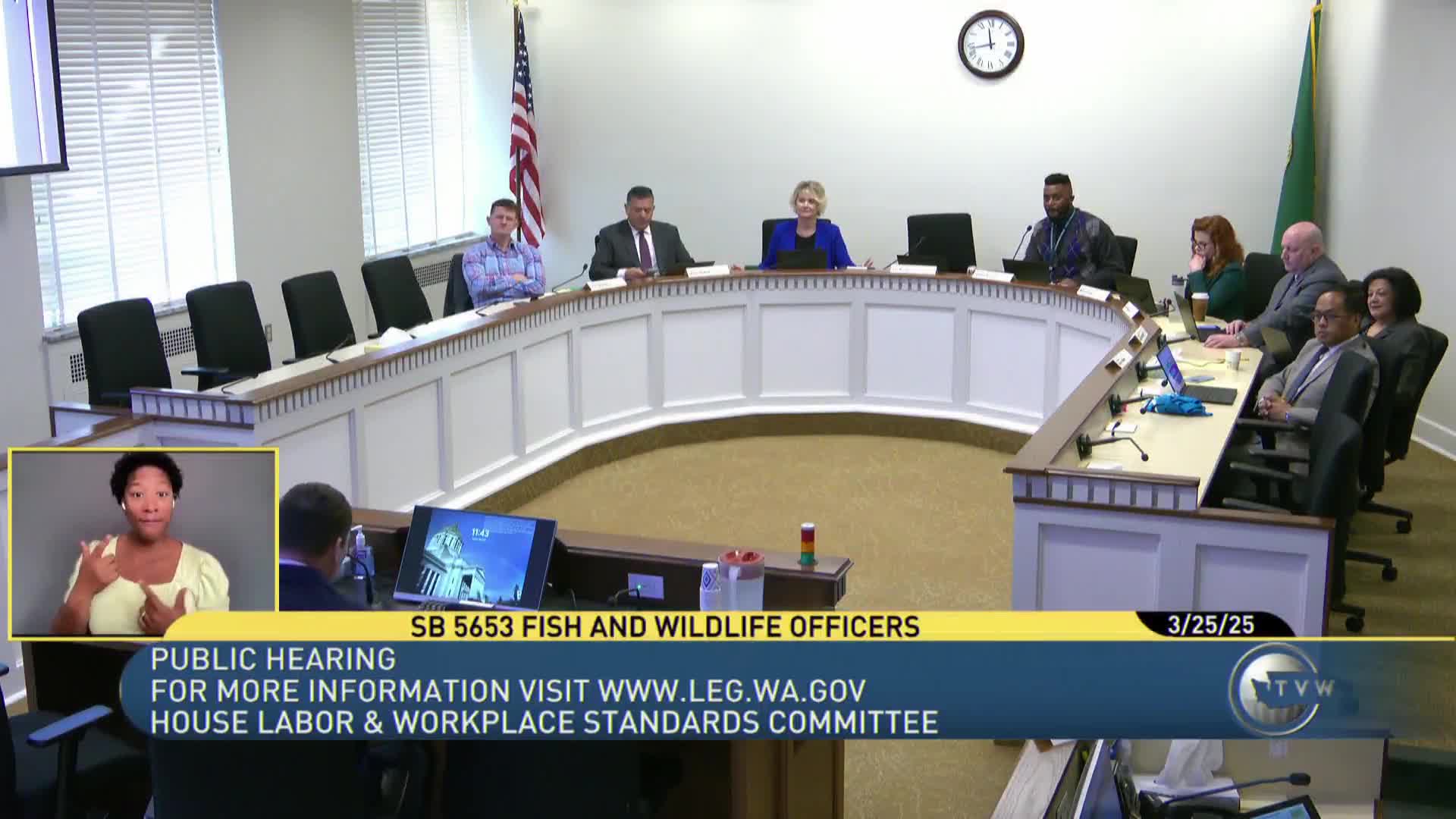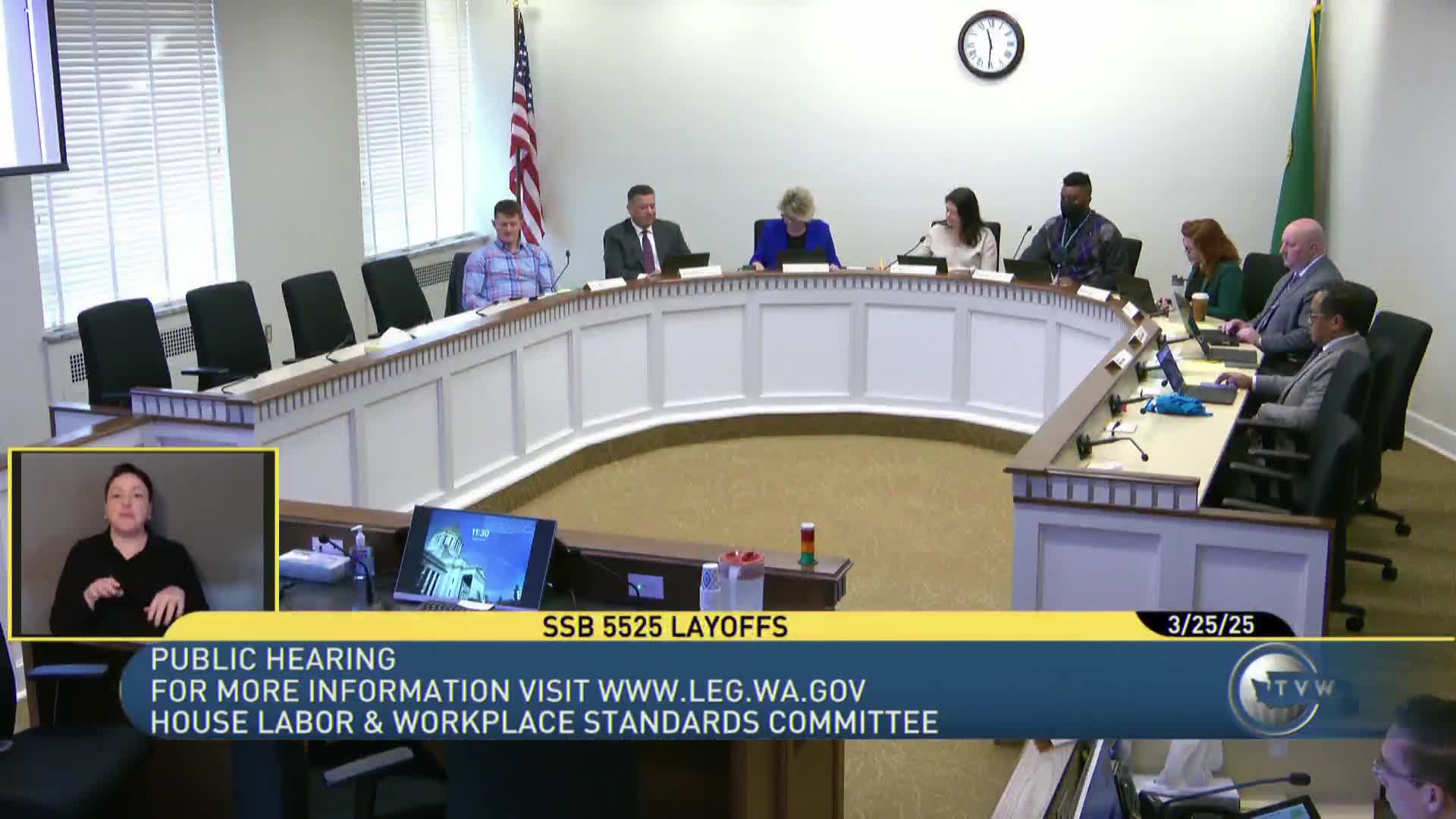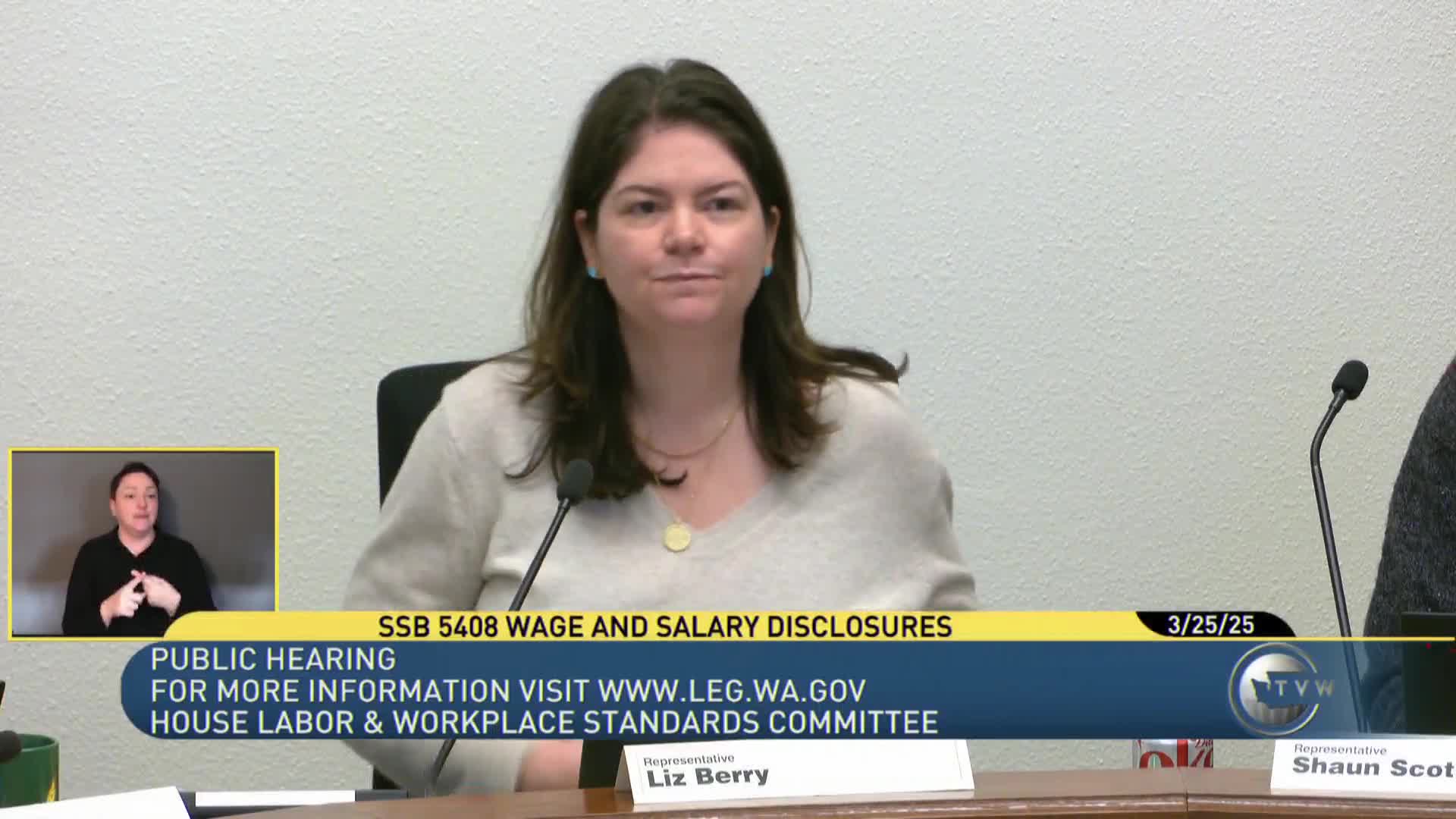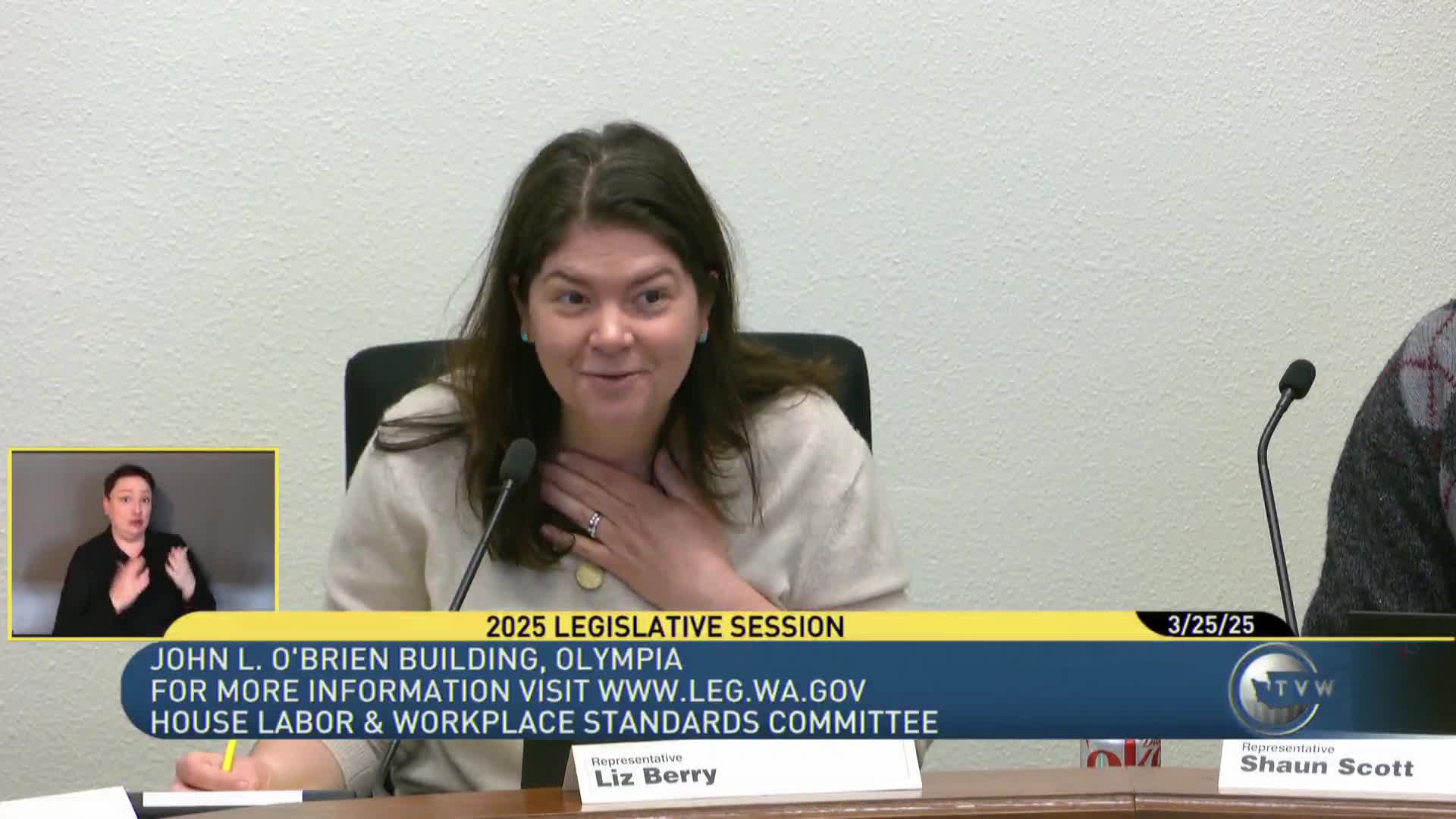Article not found
This article is no longer available. But don't worry—we've gathered other articles that discuss the same topic.

DFW captains and lieutenants seek interest arbitration and removal from coalition bargaining

Panel hears state WARN‑style bill to require 60‑day notice for mass layoffs and closings

Committee hears bill to require annual prevailing‑wage adjustments on public works contracts

